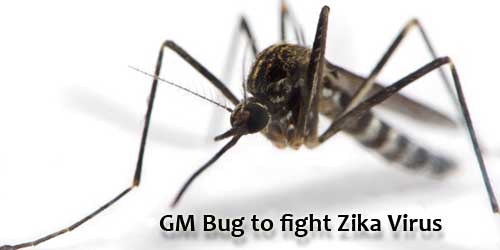To counter the threat and spread of Zika virus the authorities in the south eastern Brazilian city of Piracicaba have ordered the dumping of the genetically engineered Aedes aegypti mosquitoes.
These mosquitoes have been genetically engineered to pass a lethal gene to their offspring which die before they can reach adulthood.
The biotech bugs, developed by a British company – Oxitec – to fight dengue, but would also work to reduce the spread of Zika, could become one of the newest weapons in the ceaseless battle between humans and mosquitoes.
Also Read: The Nobel Prize – Everything you wanted to know
This approach, in small test, has reduced mosquito populations by 80% or more. The company, Oxitec, has claimed that since last April in one neighborhood of Piracicaba populated by about 5,000 people the mosquitoes have been released. There was a reduction, by the end of 2015, in wild mosquito larvae – as opposed to larvae inheriting the lethal gene – of 82%.
An all-out war on Mosquitoes and Zika Virus
Oxitec and the city informed that they would expand the project for another year which would cover an area of up to 60,000 people. To rear enough mosquitoes Oxitec is building a new factory that would cover an area with 300,000 people.
These genetically engineered mosquitoes have been named “Friendly Aedes aegyptic” by the company. According to the company it releases only male mosquitoes, which do not bite.
The company has also claimed that its solution is ecologically friendly because only one species targeted, whereas chemical spraying affects many types of organisms.
Also Read: Medicines and Pharmaceutical Drugs
However, Reo de Janeiro is grappling with another approach in which mosquitoes are infected with Wolbachia, a bacterium that does not infect them naturally. Once infected, the mosquitoes do not collect and transfer viruses as easily. The bacteria can be transferred to the next generation through eggs, so they expand through the mosquito population.
However, gene drives, which are genetic mechanism that swiftly produce a trait through a wild population, may be a new and even more powerful tool. Gene drives that work in mosquitoes in the laboratory have been made by scientists.
According to a professor, Anthony A James, at the University of California, Irvine, it would be straightforward to apply a gene drive to spread something like a sterility trait by using the Aedes aegyptic population to kill them.
Also Read: Ebola virus

sir i m student of class 10 kv seoni in i want to become an ifs sir please tell me what can i do on daily basis and after tenth to achieve my goal
Comments are closed.